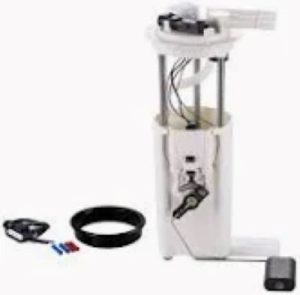The longer you keep your fuel pump healthy, the less frequently it needs replacing, which also results in better mpg and avoiding expensive repairs. Probably the easiest task you can do to keep your fuel pump happy is by making sure you have no less than a quarter tank of gas in it at all times. Using the pump under low fuel implies that -having more air engulf through it-. Therefore, claiming less cooling and lubrication. Low fuel conditions can cause increased wear and overheating, which typically reduces the life of a half worn pump by about 30% vs one used on no or almost full tanks per Academic studies. In colder weather that condensation can harbor water, which could eventually corrode the fuel lines and pump too, many automotive experts suggest always refueling before your gauge drops below a quarter of a tank.
Another crucial step is to use high-quality fuel. Most premium fuels have solvents or detergents in them that help keep the fuel pump and injectors clean, which prevents sludge from building up inside your engines so it can clog the fuel lines. When the fuel pump is clogged, it starts working harder than it should and becomes less efficient leading to overheating. Low-grade fuel can literally multiply the wear of your fuel pump by up to 20 percent, according to a study conducted by the American Automobile Association (AAA). Pick gas stations that promote fuel with additional cleaning agents and the pump will have a cleaner intake, helping to provide long life.

Replacing your fuel filter periodically is also important to help maintain the health of a fuel pump. The filters keep particles such as dirt and rust from entering into the pump, so changing them out at 30-40k miles ensures fuel is properly flowing. Or, the pump will have to work harder if a fuel filter gets clogged and can't flow as easily, reducing your overall efficiency — which is bad for reasons aside from just fuel pressure or seeing how many miles you've gone since that last fill-up. Automotive technicians recommend checking the filter as part of routine maintenance, especially in vehicles with high mileage.
Another vital thing here is to perform the proper maintenance checks as prescribed at regular intervals. On these, technicians check the pressure that a fuel pump is producing to make sure it's delivering the right psi -usually 40-60 psi for most engines. If the pump is having a hard time reaching target pressure, there may be wear or blockages that need to be looked into. A nipped throttle plate will stop engine stalling, misfires and further wear on the fuel system.
To quote the words of Carroll Shelby, “Good parts are worth their weight in gold.” If you take the same philosophy with your fuel system and have a reliable Fuel Pump, paired up with regular maintenance; its going to be at risk of lasting longer before problems start occurring. Following these preventative measures, one can keep the Fuel Pump healthy and running for longer, facilitate smoother handling of car movements preventing sudden break downs promoting both reliability as well safety.